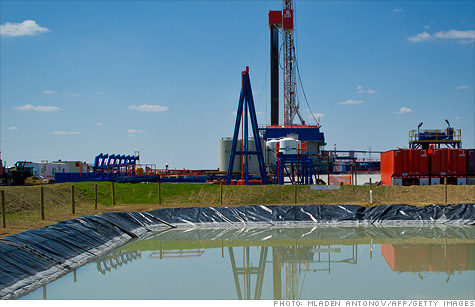« Americans: Born Outlaws. | Main | John Kerry threatens Afghan presidential rivals with "Mother of All Time-Outs." »
July 07, 2014
[UPDATED] Last Week's Zoning Power-Based Decision by New York Court of Appeals: A "Watershed" for Fracking Opponents?
For the future of fossil fuel extraction in America, here is an important and possibly game-changing development (although I was just informed that French actress Audrey Tautau's upcoming 38th birthday is "just as important, dude, if not more so..."). First, if you need some background, see this June 30 WSJ article, on the decision last week by New York States's highest court to allow municipalities to use their zoning powers to ban the practice of induced hydraulic fracturing--or "fracking"--to drill for natural gas. And see two blog posts by attorneys, both with the New York City office of the well-regarded Natural Resource Defenses Council, who have been covering the litigation: June 30 blog post by Dan Raichel and July 8 blog post by Kate Sinding.
The New York Court of Appeals' ruling is certainly not novel--or really even limited to fracking. That communities may use zoning laws to limit activities on land is black letter law in nearly every American jurisdiction. But the clash of interests on each side of the fracking issue--opponents correctly arguing that the best current methods of extraction threaten natural resources and human health versus large producer-corporations correctly arguing that fracking is getting America closer to energy independence, and at the same time providing good jobs--has been exceptionally intense, loud, emotional, enduring.
Fracking technology is not new--and has been used for over 50 years to extract shale gas, tight gas, tight oil, and coal seam gas. Fracking's methods have never been particularly safe or without environmental risks. Geologists have known for decades about substantial shale natural gas reserves underneath us that fracking methods might be able to extract.
So what's really new? It's the huge, bold, previously unthinkable scale on which more recent fracking methods are based and are now being used all over the country. From the standpoint of the production of energy, and cheaper energy at that, it has been a hands-down success. No question.
Here's the problem, which is largely a matter of public relations. Each of the two respective arguments mentioned above--and this is not always the case, folks--has both merit and broad appeal. And, importantly, the nature of each of these overall arguments allows both sides to affect a certain righteous indignation. Opponents of fracking (i.e., let's protect humans, environment), those on the "David" side, have the advantage here. No one can deny either the morality or rationality of putting humans and nature first.
Fracking proponents (i.e., fracking is the key to American energy independence, and helps create needed jobs), or those in the Goliath camp, appeal to patriotism, energy security, and helping the American economic recovery with jobs. Granted, the energy industry has made a very similar arguments in the past (e.g., compliance with new regs forcing us to upgrade air pollution control equipment is expensive, and will eat up jobs) when faced with environmental barriers. Now, with a huge new supply of cheaper, domestic natural gas in the balance, the energy producer's argument is more compelling than ever. Producers have staff, experts and all manner of hired guns to help make that argument.
So both sides are "right". In government and politics, that can happen. But the sides here are David v. Goliath, and each is apparently willing to devote whatever money, additional resources, passion, organizational time and political capital it has to the fight, and fight indefinitely. That, frankly, is rare. In most cases, the grass roots David side--of veteran activists, new activists, fathers, housewives and college kids, and usually without much of a war chest or qualified lawyers for the long-haul--gets outspent or goes away by now. That has not happened here.
On July 7, The Hill, the daily newspaper covering Congress, wrote about the New York ruling in "'Watershed moment' for fracking foes?", but hasn't identified any significant long-term response from the energy industry. Our take is that the New York decision should and will stick as a matter of basic constitutional law, and will be closely looked at as a roadmap by other state judiciaries in similar cases. From proponents of fracking, you are likely to see a difficult, ardent and slightly demented attempt to 'federalize' fracking, probably under the Commerce Clause and coupled with policy arguments that the importance of energy security should trump local and state rights (which if successful in our judgment would make for bad law).
In any event, fracking, which no one sane and educated really likes, is here to stay, with or with or without zoning constraints, as long as producers keep finding ways to get leases on substantial "new" fossil fuel reserves. For some pols, the unexpected appearance of "successful" fracking on a huge scale is even a bit embarrassing. President Obama, an environmentalist, and Commenter-in-Chief who often chimes in gratuitously on big issues, has stayed away from the issue.
Right now, the best argument anyone can make for fracking is probably this:
"Even though energy companies lack safe, efficient technologies for fracking, we all need the energy source. We need the BTUs".
We know. It's somehow not enough, no matter who you "side" with, is it? So we can expect that in time, Americans will demand either a safer and more environmentally-friendly approach to drilling for hard-to-reach reserves, or require a stronger, more reassuring argument.

Posted by JD Hull at July 7, 2014 01:43 PM
Comments
Post a comment
Thanks for signing in, . Now you can comment. (sign out)
(If you haven't left a comment here before, you may need to be approved by the site owner before your comment will appear. Until then, it won't appear on the entry. Thanks for waiting.)